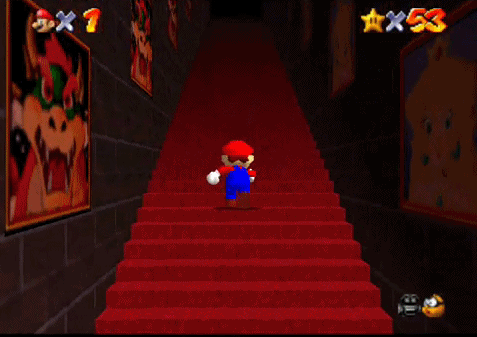On the internet, and indeed, perhaps even in real life, (I don't have enough experience there to know for sure) the most important thing in the world is to feel like you're better than everyone else. Now, in the olden days, when your crusty old parents were still nice and doughy, you had to actually do things to be better than everyone else. Something great, like winning a gold medal at the Olympics, or discovering a new element, or writing a blog (ladies). But then, a great man invented the internet, and decided that He would be the last person to ever have to put effort into feeling better than everyone else. You see, nowadays, you can feel superior not for the things you create, but for the things you consume. Why write a book of your own when you can feel better than anyone who has ever read Twilight just by reading literally anything that isn't Twilight? (Hating on Twilight is sure to keep me hip and trendy with the kids, right?) Why start a band of your own when you can feel better than everyone else just by listening to music they've never heard of? Indeed, it is that second example that I'm running with, because it's become a common phenomenon in recent years for people to judge others based on their taste in music, with the quality of one's taste being inversely proportional to how many people have heard of the bands they like. However, there is a way to beat this system, a way to prove that you're better than everyone by going in the exact opposite direction: Composers that everyone's heard of, but tragically few people actually listen to. That's right, this is a post about Classical Music!
Before I go any further, I feel I should explain the title. As I'm sure you know, all violins have a two little holes in them that are shaped kind of like an "f", or an integral sign, a fact which has not been lost on anyone who has ever made a Calculus textbook.
 |
| A good violinist always remembers to add C |
This hole is, hilariously, called an f-hole by real people who probably have graduate degrees and loving families. The G-String, on the other hand, is the lowest string on the Violin, probably. Its inclusion is a reference to Johann Sebastian Bach's "
Air on The G String", which is only played on the G-String. My title is certainly a reference to that, apropros of something. But it's totally not a reference to something else that is referencing that. I definitely did not start listening to classical music because of something that I played or read.
 |
| I swear, officer, I've never seen that penguin before in my life. |
And here I find myself in the strange position of name-dropping a song that's kind of by Bach, but not quite, for the second time on this blog. Previously it was
Ave Maria, based on Bach's "
Prelude in C Major" from The Well Tempered Clavier. But "
Air on The G String" is actually just an arrangement by some show-offy violinist proving that he could play Bach's "
Air" on just one string. I think that's an interesting coincidence, and there are plenty of people willing to confuse coincidence with humor, and I'm willing to take advantage of that.
So, what can you do to to become a savvy listener of Real Art? Basically just check out Spotify, man. That's all there really is to it. There's actually an app called "Classify", in a pathetic attempt at humor worthy of this blog, that is an app for just classical music. Though technically, the "Classical" period only includes 1750-1830, it has music from the entire Common Practice Era, from 1600-1900, as well as newer stuff, probably. But if you're the kind of person who knows the difference between "Baroque", "Classical", and "Romantic" eras, then you should be the one spreading the good word, so I'm not making a fool of myself just because I apparently have a thing for girls who can't play the violin. Just another weird thing about me, if you're still keeping score.
 |
| Some people were meant to keep their integrals on paper |
But before you dive right in, you might as well listen to the greatest song of all time, a composition with the catchy title "
Hungarian Dance No. 5 in G Minor". Actually, that joke about the catchy name was hardly even sarcastic. It would seem that most great composers cared enough to create some of the most stunningly beautiful art in human history, but not quite enough to give them proper names. As such, you'll find that a lot of songs have titles that consist of some broad category of composition like "Symphony" or "Concerto", a number, maybe an opus, a couple other nonsense letters and numbers, and a key. If any actual title is included, it's shoved at the back, where you can't even see it, and was probably made up by someone other than the composer, after his death. After the composer's death, that is. The person who made up the title was (hopefully) very much alive when he did so.
But back to Hungarian Dance... actually, you know what? Screw it. Just find everything by the London Symphony Orchestra, and listen to it. I just found that they have a cover of "
The Final Countdown", and I'm freaking out a little bit right now. This is in addition to the two albums of greatest hits video game music they've produced, and the 50 Greatest Pieces of Classical Music playlist that's provided me with much of the classical music I've been listening to. In even more addition, they've got a whole host of Star Wars and classic rock music. "
Eye of the Tiger"? You bet. "
Hey, Jude"? Sure. "
Bohemian Rhapsody"? I've already got an orchestral version of that, but sure, why the hell not? Ironically, Spotify is currently down for me, so I'm having trouble finding an exhaustive list of all their music.
Actually, now that we're on the subject of orchestral covers of great songs, you might as well check out Walt Ribeiro, (Youtube name: ForOrchestra) who makes some pretty boss orchestral covers of songs like "
Gotta Catch'em All", "
Gangnam Style", "
My Little Pony", and "
The Thong Song". Apparently he comes out with a new arrangement every week, but I'm not sure what day. I certainly hope that it isn't Thursday... Too Soon.
 |
| Good Night, Sweet Prince |
That was supposed to be an image of Thomas O'brien, but since I couldn't find one, I decided to pay my respects elsewhere.
Now that my internet is back online and I'm too distracted by it to make jokes about how dependent I am on the internet, I can check Spotify, and I now know that you should absolutely not try to listen to everything by the London Symphony Orchestra. Unless you live in a country with a
mean healthcare system, (Thanks, Obama!*) the total runtime of all their music may outlast your life expectancy. I went to their page, and the songs just keep going down and down forever, until your scroll wheel grinds into the chassis of your mouse. I'm pretty sure that somewhere along the way, it just loops back up to the top, and you keep scrolling down forever, like Bowser's Infinite Staircase.
 |
| Pictured: The London Symphony Orchestra |
I would just like to make clear at this point that I am entirely aware that making a post about Classical Music was a bad idea. When I first had it, I thought it might be bad, when I told my secondary Content Manager about it, she seemed all for it, but I suspected that it might be bad, and now that I'm cheekbone-deep into it, I am certain that it is bad. But I can't give up now, because the word of orchestral "Final Countdown" must be spread. Everyone must know of it, and if I deprive even a single person of that joy by not finishing this, then I scarcely believe that I could ever forgive myself.
Since I'm talking about Classical music, I would be remiss to not talk about some composers, if only to provide some evidence that I have some semblance of an idea of what I'm talking about. (But don't tell the judge. Forged evidence is serious business.) Since I already mentioned Bach, I guess I'll go back to talking about him. Or I guess I could say "Bach" to talking about him, if you need a reason to hate me. Johann Sebastian Bach, or "The Big Bach", as he's called by hopefully only fictional persons, was a great composer. He's apparently considered the greatest composer of all time by a lot of people, and I'm certainly not going to argue. Technically, he isn't a Classical composer, but a Baroque composer, but as I've said before, no one asked all that. His greatness stems from the fact that his name was "Johann", and with a name like that, you can't help but be classy and great. It's a proven fact.
.jpg) |
| According to Google Image Search, this man was probably great. |
Moving on in both alphabetical order and greatness, we get to Beethoven. Now, if you ask the average person to name a Classical composer, they'll probably throw out Mozart. But if you ask them to hum a classical song, they'll probably come up with something by Beethoven. Ludwig Van Beethoven
is classical music. Named after the oldest Koopaling, [citation not needed] he has composed some of the most recognizable songs of all time, like "
Fur Elise", "
Ode to Joy", and "
This song that I will forever associate with a girl whaling on her younger brother". (That's a link, in case you're curious) Beethoven famously went deaf, but he
still wrote music. That's how great he was. He wasn't about to let an organ as dumb as his
ears tell him what made music good. He was so good that only
italicized font can convey how good he was. Mozart was definitely a great composer, but the beginning of
one of his most popular songs was ripped off of Mario Brothers, anyway, so I'm not sure that I can say he was as great as Beethoven.
The last composer that I really care to mention would have to be Tchaikovsky, perhaps my personal favorite composer. He has a lot of famous compositions, like "
Swan Lake", "
The 1812 Overture", and "That song that plays when Spongebob gets the suds" (That's not a link, because I'm confident you all know what I'm talking about.) He also wrote "
Romeo and Juliet: Fantasy Overture", a name that you probably don't recognize, for a song that you almost certainly do. Any time two characters are in love, this is the song that plays. You remember that part of "A Christmas Story" where Ralphie is imagining the teacher grading papers, and then she falls in love with his essay? That was this song. Tchaikovsky has a great skill for writing long compositions that don't sound boring or drawn-out, and for that, he gets mad respect.
And that's really all I have to say about about classical music. Just follow these tips, and you too can have more class than a community college! But even though all of these composers are very great, they still can't hold a candle to the one true genre of music: "
Neoclassical Darkwave". (Pay close attention, and you can catch bits of Mozart's
Symphony No. 40 in G Minor)
Bonus Joke: Pachelbel only ever wrote one
canon, so he had to make sure that it was something that would be really memorable. An important part of any composition is its key signature, so when it came time decide, he remembered the immortal words of Renee Descartes... and he gave it the D.
Or, if you prefer your jokes in the form of couplets in iambic pentameter...
When Pachelbel decided "
Canon"s Key
He made just like Descartes, and gave The D.
*Sarcasm applied at the reader's discretion





.jpg)



